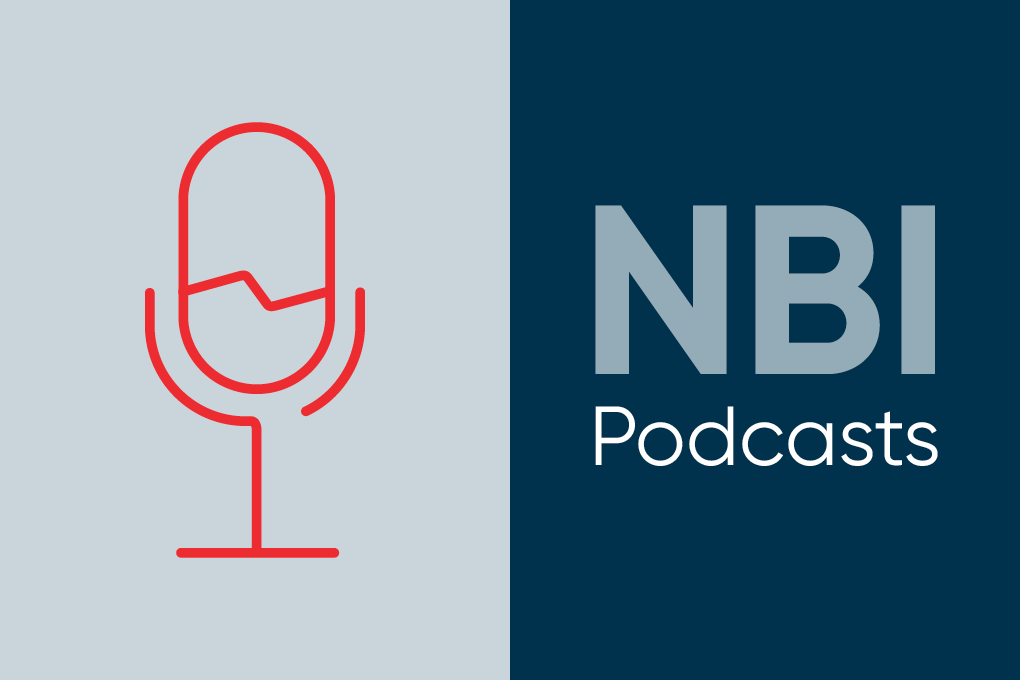Annamaria Testani (AT) and Terry Dimock (TD)
AT:
Welcome everyone to NBI’s first edition of podcasts which are called NBI Quick Takes. The goal of these podcasts is to really provide you answers very quickly to the hot topics that you are currently going to go through either through your due diligence or your portfolio management in the lives of your clients.
My name is Annamaria Testani and I'm Vice President for National Bank Investments and with us, our special guest today is Terry Dimock, who is Head Portfolio Manager for NBI.
One of the interesting topics that we've seen quite a bit in the newspapers, and I really want to dig a little deeper into, is this whole concept of ESG. Now the problem with the ESG is there are many different definitions towards sustainable investing or, actually, what ESG means itself. Could you kindly help us demystify this definition, and what does it really mean or what should it mean to clients?
TD:
Well, if you go back 20 years ago or more, it really started with exclusions: different communities looking at their values and deciding not to invest in certain sectors. You can think about sin stocks for example, or others. But it's evolved a lot over time as people have been looking more closely at the issues of E, S, and G – environmental, social and governance – and really looking at every investment they make through that filter.
So really, they want to look at what are the risks really coming from – environmental, social and governance factors – on top of doing normal financial analysis. And I think once you start doing that, you start looking at companies in quite a different way and you start managing your risk in a different way as well. We believe that additional filter really can give you at least as good a return if not better, but definitely help you manage your risk on the downside.
AT:
I think, especially in this environment, Terry, being different and showcasing that value to clients, I think is an important step in advice.
So, what you mentioned right now, you talked about sustainable development goals. Can you elaborate, from the United Nations, why are they so important today?
TD:
Well, in 2015 the United Nations and the 190 some-odd countries came together and decided: what are the goals we have to strive for to make the planet sustainable over the next 15 to 20 years. They identified 17 different goals/areas of investment where over those 20 years they would have to commit 90 trillion dollars to be able to make sure that the planet is on a solid footing going forward. Once you start looking at these goals, some of them are about education, some of them are about the environment, clean water, peace – all of these important issues. By having those goals set for the next 20 years, you can start looking at the companies that will benefit from those goals where they'll benefit from the investment, where the money is going, to make sure that you know where the 190 countries are investing.
That's where I want to be with my investments, because that's where the cash flow is going to be. That's where the profitability is going to be. And so, at the same time you're helping the planet attain some really important goals, and on the other hand, selecting companies that will benefit from that and give you a good return on your investment.
AT:
You know what, I find it very interesting and I guess this is one of the reasons why we've seen in the industry quite a bit of ESG products come to the market, allowing investors to take advantage of not a trend, but a new way of demands coming from our clients.
Now, what's also interesting is all previous ESG launches were with passive management. Why did NBI opt to really favour active management in ESG?
TD:
Well, as you know, Annamaria, we're fact-based at NBI. We want to do research and try to find what is the best approach to any investment you were trying to tackle. And when we looked at ESG, we looked at all the different providers of information. There's a lot of data out there, but a lot of the different providers calculate ESG issues in different ways, come up with different scores.
They give scores to companies for the same companies that are quite different. Some saying they are 100% ESG, some say they’re 0% for the exact same company because there's no standard yet. There's no approach to managing or to measuring how one company is on governance issues, or how one company is on environmental issues. All that needs to be standardized.
And on top of that, when we did our research and looked at the returns that we got from these indices, they usually don't give you a better return than the underlying index. So, an S&P 500 index usually gives you the same return as an S&P 500 index that’s being weighted on ESG issues where you're trying to put the best companies with a bigger weighting in your index.
All these approaches are trying to get at the issue of ESG but have yet to give results that would give you a better risk-adjusted return. So we favour active management because, when we go back to our sustainable development goals, we want managers that can really go out there, dig into the business plans of every company and find which ones are going to benefit from the investments that are going to go towards sustainable development goals. And when you start looking at those companies and then finding the ones that have the right business models, and again, coming back to normal finance after that, really finding the ones with the right valuation, right sustainability of cash flow, but that are aligned with ESGs… Then I think you can start building a portfolio that will give you good returns adjusted for risk over time.
AT:
Yes, and if I'm not mistaken, I think also what’s interesting about NBI we’re is not saying passive is right or wrong, and we're not saying active is right or wrong. What we're trying to say to everyone is every asset class has to be looked at in its own realm and when it comes to ESG there are different opportunities to be unique and for us we opted with active just because we think that is where the key elements are going to be found.
So, one of the unique things about NBI is we have an open architecture and we follow a process which is called OP4+. Basically, it’s the organization, it’s the people, process, portfolio as well as performance and the + has to do with ESG. So how do you actually recognize a key portfolio manager with good sustainability within this process? How do you use that filter to find good sustainability managers?
TD:
When we look at managers, we use the OP4+ approach and those are important pillars that we look at in a manager. Really, what are the success factors that we’re looking for in every manager that has shown overtime to produce good returns adjusted for risk? And we added the + which is sustainability, the integration of ESG two years ago because we felt that extra pillar was important in finding even better managers. And what we mean by integration of ESG is on top of normal financial analysis, how are they looking at ESG factors, the risks around those factors in making better selection of securities.
So, are they looking at the risk tied to the environment? There's a lot of issues today tied with rising oceans… Well, is the production facility of a certain company at risk two years from now? Three years from now? We can think about what's coming right now during the current pandemic. Well, it's a very low probability issue that we have a pandemic, but our company is well-positioned to really have a good balance sheet, have good risk mitigation, have good continuity plans to give you a good return over time on your investments. I think the managers that really integrate that on top of all of the other well-known approaches to financial analysis will give you better returns over time, and that's why we've added that to our selection criterion when selecting managers.
AT:
So it's perfect. I think, again, NBI is constantly at the forefront of wanting to bring value, being unique, adding to our unique selling proposition, and I think this is our way to keep growing it.
So now that we've gone through the last seven or eight weeks, which have been very interesting weeks. We've seen, in conclusion, the parallels this pandemic is causing. What do you see in the forefront for ESG investing in the coming months or years knowing now what we know what's happened in the last six or seven weeks right now?
TD:
Well, you know if you go back in January, not many of us would have predicted that we would be in this pandemic and that the economy would close – a lot of businesses would shut down temporarily. People would be furloughed. Very low probability event, yet we've heard about potential pandemics for years now. It's happened in the past, not at this scale, but it's happened before.
And you can make a parallel with climate change. You know we've been hearing for years now: climate change, there are issues coming. The temperature is rising slowly and that could lend itself to pretty significant problems down the line. I think what people are going to come out of this with is, how am I managing my risk? Do I use managers? Do I work with managers that are looking at all these different risks tied to climate, tied to pandemics, tied to other issues that are linked to the environment or social issues or governance? And that extra level of risk analysis I think people will take even more seriously. I'm not saying that the whole world is going to become green, but I think the whole world is going to look at risks in a very different way than before and make sure that they are using portfolio managers that really pay a lot of attention to those risks and take it into account when they're selecting securities.
AT:
I would tend to agree with that. I think one of the most valuable lessons we've seen in the last 12 months is it’s not just price, you can buy a lot of things that are not expensive, including portfolio managers. What we're looking for is that consistency and conciseness over time, the good and the bad, and managing an environment that's constantly in evolution and transforming itself. I think to your point, there's a lot of asset classes that are going to get a lot more scrutinized when we return to a new set of normals, and NBI’s commitment is to constantly be looking at its filters and saying, how do these filters get impacted? And what impact does it have on the portfolio manager to whom we've allocated the funds?
So, on that note, thank you very much, Terry, for attending our first edition. We're hoping to have many more to come. It's concise, it's quick. I hope you've learned quite a bit about sustainable investing, and we look forward to hearing from you in the coming weeks.
Thank you, everyone.


 Terry Dimock
Terry Dimock


